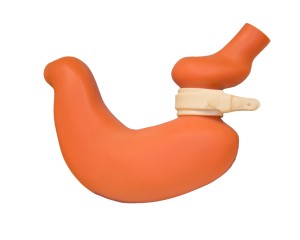Overeating And The Brain
But does the brain tell us to overeat? Sometimes it does, if people have damage to certain parts of the brain, they can have faulty signals. The prefrontal cortex comprises 30% of the human brain and acts as the supervisor of the brain. The prefrontal cortex is not fully developed until age 25. When it is weak or damaged, it is like the supervisor in your head is taking a break. So when your inner child is having a tantrum, wanting that 3rd piece of cheesecake, there is less control over the situation. If your prefrontal cortex is not working right, nothing in your life is going to be right. So head injuries can affect overeating as well as low blood sugar. If you don't eat breakfast and provide your brain with the proper nutrients it requires to operate well, you are going to make bad decisions about food the rest of the day. If you don't sleep well, you will have lower blood flow to the brain, so sleep is equally important.
In the studies that have been done by specialists, including Dr. Daniel Annen, being healthy is critical to thinking right. In fact, as a body's weight goes up the actual size of our brain goes down, so judgment changes and reasoning goes down. Also, if you've had a brain injury, overeating goes up. If you've been eating badly for a long time, you become addicted to the bad foods like fat, sugar and salt. When you put them in certain combinations, they actually work on the heroin or morphine receptors in the brain.
Dr. Julian Bales, Chairman of the Department of Neurosurgery at West Virginia University Health Science Center, is on the front line of an experimental approach for the treatment of obesity. The approach targets the brain and not the stomach.
Deep brain stimulation is the insertion of electrodes deep in the brain's hypothalamus, the part that controls our appetites. Neurosurgeons have spearheaded a FDA approved study to see if this could possibly have a benefit for patients with morbid obesity, the most severe form. It works by placing electrodes on both sides of the brain into the hypothalamus, one into the part that is the satiety center which makes you feel full and the other side is the appetite center where the drive for eating is located.
These electrodes have contacts on them that go through these areas, with a pacemaker type generator inserted under the skin. From the pacemaker, they are able to change the settings, and affect the appetite drive those patients have.
In the first series they did, they have learned that the procedure can be done safely, with no side affects and they can affect the urge to eat! They believe it will be well tolerated. They do not have all the results yet, and are now trying to fine tune the settings to see if they can get the weight loss desired by the doctors and patients.
Related Articles
-
Diet Tips For The Way You Live
Staying on your diet can be a challenge for anyone, but for a busy wor
-
Learn To Achieve Successful Weight Loss By Simply Tracking Your Food
When you first start your diet one of the things you will learn right
-
5 Tips For Dieting Success
There is no one single cause of obesity. In most people obesity is bro
-
Weight Loss Diet - Reduce Weight In A Healthier Way
Overweight refers to people who are suffering from obesity and in c
-
Hyponsis As A Perfect Weight Loss Method
Hypnosis is a state of heightened suggestibility as a result of focuse
-
Lose Weight By Avoiding Acidic Foods
Alkalizing your body can help you improve your health and reach your i
- DON'T MISS
- Why Curb Your Carb Intake?
- Exercise And Atkins A Great Combo For Success
- Do You Want To Lose Belly Fat And Get A Six Pack Abdomen? - Unlock The Hidden Truth For Good Health
- Why Most Diets Dont Work
- Losing Weight With Smart Suggestions
- Using the Internet to Develop Your Own Weight Loss Plan
- Tested Approaches To Healthful Eating Habits For Children
- The Only 3 Moves You Need For A Quick, Full-Body Workout
- Low Fat Diet Plans - Are they right for you?
- Obesity in America




